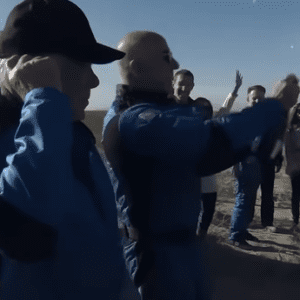- If you want to change the world, you need a grand vision.
- It helps to have a rich family that owns mines using slave labor, too.
- If you apply yourself with ferocious dedication, and are willing to put in the work, you can learn to do incredible things.
- And then assume that because you know a lot about one highly complex technical subject, that means you’re a genius about absolutely everything, including things you haven’t studied.
- It’s not enough to have vision, you also have to apply tremendous hard work to the things you want.
- Which leaves less time for things like learning social skills.
- Which means that you treat the people around you like disposable commodities.
- Which leaves less time for things like learning social skills.
- It’s possible to disrupt multiple industries.
- And when people congratulate you for your success, it’s easy to believe that you are entitled to success, that success will happen no matter what you do, and that anyone who says otherwise is just wrong (at best) or actively malicious (at worst).
- An engineering approach of “iterate fast and make mistakes” is extremely effective in an industry primed for cutting-edge technology disruption.
- It’s a terrible way to run a romantic life.
- Huge buckets of money can enable someone in remarkable ways.
- Huge buckets of money can insulate someone from accountability.
- A combination of single-minded intent and raw intelligence can make you incredibly effective.
- A combination of single-minded intent and raw intelligence can make you a petulant, narcissistic man-child.
- Surround yourself with talented people and give them excellent direction and you can accomplish impossible things.
- Surround yourself with suckups and yes-men and you can start believing your own bullshit.
Look, straight talk here:
Elon Musk’s drooling fanbois are a bunch of idiots. Elon Musk’s army of rabid haterz are also a bunch of idiots.
A lot of folks really struggle with nuance and complexity. They need people to be simple, black or white caricatures. A person must either be a hero or a villain, a savior or a schemer.
The folks who say Elon Musk is an overrated poseur who never actually contributed anything at Tesla or SpaceX are morons who don’t know what they’re talking about. He’s legit a genius and a fantastic engineer. I’ve talked to bona-fide, actual rocket engineers who’ve met Musk and say he’s the real deal. He was integrally involved in the design of the Raptor rocket engine.
The folks who say Elon Musk is a boy wonder who is amazing at everything he does are morons who don’t know what they’re talking about. Elon has the social skills of potato salad and a peculiar and singularly toxic blend of self-absorption, entitlement, and narcissism that legit make him a terrible person to work for. Like many smart people, he believes his first thought on any subject, even if it’s completely outside his wheelhouse, is Revealed Truth™. He’s succeeded splendidly at a few things, so he thinks that makes him infallible at everything.
All these things can be true at the same time.
The need to think he’s a poseur moron because you don’t like him is stupid. The need to see him as some kind of infallible tech saint because he’s done amazing things at SpaceX is stupid.
The most important thing we can learn from Elon Musk? How to avoid simplistic cartoon thinking. Not by example—simplistic cartoon thinking virtually defines his approach to the world—but in the way we think about him.

We learn that:
- When you see a problem, you don’t complain about it, instead you try to find a way and solve it.
- You don’t just dream big, but you wake up and work hard (really hard) to achieve it.
- You don’t just think about yourself, you care for the causes which affects the nature and the future of human beings.
- You do what needs to be done, not what is easy, nor what is normal.
- You don’t give up when you fail, you try to find out what went wrong, you learn from your mistakes and come back stronger.
- You don’t lose confidence when things are not going your way and you stay humble while you are on the peak of success.
- You learn that it is possible to teach yourself rocket science.
- And you never forget to be cool…
- Reading Can Make You Smart, Very Smart.
When Someone asked Elon Musk “You don’t have any degree in Aeronautics and still You are the founder most successful private Rocket Company. How did you do these things?” He Said, “I used to read a lot.”
- Hard work can help you to achieve great heights.
When Elon and his brother used to work on their first startup, they used to work 18–20 hours day and night continuously for years. Hard work helped them to achieve great heights and make a great venture X(dot)com which merged with Paypal.
- Not Giving Up during Bad Times.
When he was fired from his own startup, he didn’t give up. He worked hard and started his next venture SpaceX. When His Startup SpaceX and Tesla were in serious trouble, at that point too he didn’t give up. He worked hard and made it successful stuff.
- Thinking out of the box.
When everyone was advising him that he is working on some impractical thing that will fail for sure. At that time, he didn’t listen people, he worked for his own goals and made it successful stuff.
- Following Your Passion.
Elon Musk and his Venture are true examples of following the passion even in bad times and working to achieve some great milestone.

THE 22 CRITICAL THINGS I’VE LEARNED FROM ELON MUSK
I listened to every interview he ever did and compiled what I think are the most inspirational quotes to me.
They may not be inspirational to you. Inspiration is somewhat of a risk: it takes you outside the world you once knew and introduces you to a new thought, person, idea, or something totally unexpected.
So I wrote down the quotes and what I think I learned from them. Maybe as I think of them more I’ll learn more. I don’t know.
Here are the inspirational quotes from Elon Musk that stuck with me:
1. “If something is important enough, even if the odds are against you, you should still do it.”
I was thinking: what if it really is impossible.
But Elon Musk then takes it to the next level always: “let’s go to Mars”.
Or “let’s make a billion dollar battery factory.” So at the very least it’s always worth exploring the delicious curvature of the impossible.
2. “Going from PayPal, I thought: ‘Well, what are some of the other problems that are likely to most affect the future of humanity?’ Not from the perspective, ‘What’s the best way to make money?”
I’ve interviewed over 100 people now on my podcast. Each of the 100 have achieved amazing results in their life.
That’s a subjective opinion. “Amazing” to me.
But none of them have done if for the money. I was talking to Coolio, for instance, who had the best selling song of 1995.
He started writing lyrics every day in 1977. It took him 17 years to have a single hit.
“Never do something for the money,” Coolio told me.
3. “(Physics is) a good framework for thinking. … Boil things down to their fundamental truths and reason up from there.”
My guess is he is not referring specifically to the science and theories of physics but the act of visualizing something, coming up with an idea or a theory of why it might be true, and then figuring out how to prove that theory.
To me, thats what physics is. Since the rules are constantly changing, which is another fascinating aspect of physics.
4. “The first step is to establish that something is possible; then probability will occur.”
I wonder about this. What’s impossible? Maybe a time machine is too hard to figure out.
But to make an electric car you can imagine first a hybrid car that has a trunk filled with very efficient batteries so you don’t ever need the gas part.
Then it becomes a function of probabilities versus possibilities.
5. “It’s OK to have your eggs in one basket as long as you control what happens to that basket.”
Many people think entrepreneurship is about risk. In fact, it’s the opposite. Good entrepreneurs don’t learn by failure (the popular “failure porn” all over the Internet). Good entrepreneurs learn by solving difficult problems.
Elon Musk controlled his outcome with X . com not by destroying the competitor but by merging with it (paypal).
6. “Persistence is very important. You should not give up unless you are forced to give up.”
I always think this is the magic equation:
persistence + love = abundance.
You have to love something enough to persist. You have to persist enough to deepen your love.
And then abundance is the natural outcome. Not just for you but for everyone. Since wealth comes to those who create wealth for others.
7. “You want to have a future where you’re expecting things to be better, not one where you’re expecting things to be worse.”
This is incredibly important. News reporters have zero qualifications to inform people and yet they are all doom and gloom to sell subscriptions.
But entrepreneurs are the ones who imagine a better world and how to make the leap to get there.
8. “It is a mistake to hire huge numbers of people to get a complicated job done. Numbers will never compensate for talent in getting the right answer (two people who don’t know something are no better than one), will tend to slow down progress, and will make the task incredibly expensive.”
When I was running a software company, we always knew it would take one great programmer to solve a hard problem in one night versus 10 mediocre programmers taking a month to screw up a problem even worse.
9. “If you go back a few hundred years, what we take for granted today would seem like magic – being able to talk to people over long distances, to transmit images, flying, accessing vast amounts of data like an oracle. These are all things that would have been considered magic a few hundred years ago.”
And now imagine what it will be like 300 years from now when people look back at today. “They had to actually ‘connect’ to an Internet then!” or “It took them 7 hours to get from NY to CA!”
10. “My biggest mistake is probably weighing too much on someone’s talent and not someone’s personality. I think it matters whether someone has a good heart.”
I recently watched a company go from a billion in revenues to zero when a founder stole $90 million from the company.
Integrity, humility, and doing your best is by far the most important consideration when evaluating whether to work for someone.
12. “When I was in college, I wanted to be involved in things that would change the world. Now I am.”
I always wonder about the phrase “change the world”. Can one person change another.
Perhaps the most valuable starting point is to do everything I can to change myself each day: to be physically healthier, to be around emotionally healthy people ,to be create, to be grateful.
Then maybe I can have a head start on changing the world.
13. “I think it’s very important to have a feedback loop, where you’re constantly thinking about what you’ve done and how you could be doing it better. I think that’s the single best piece of advice: constantly think about how you could be doing things better and questioning yourself.”
I’m invested in about 30 companies. The companies that fail are when CEOs smoke their own crack.
Technology, competition, customers are constantly changing. But we have a cognitive bias to think that the activity we have invested the most time in is, of course, a GREAT activity.
What could be wrong with it?
So it’s important to constantly question this evolution-based cognitive bias with constant questioning as if one were an outsider looking in. Without that, businesses fail.
14. “I wouldn’t say I have a lack of fear. In fact, I’d like my fear emotion to be less because it’s very distracting and fries my nervous system.”
A small level of fear is motivational. It forces me to have a backup plan. The average multimillionaire supposedly has seven sources of income. They all have backup plans.
Even Elon Musk has Tesla, SpaceX, SolarCity, and probably a dozen other companies he’s peripherally involved in.
Any endeavor I do, I always ask two questions: “What is my plan B?” and “What is my evil plan?” Meaning what do I hope to learn from this that nobody else expects
15. “Life is too short for long-term grudges.”
I always think that I’m the average of the five people I spend the most time with.
So this quote is important to me. Don’t spend time with people who can even incite a grudge. I try to spend time with the people I love and who love me.
16. “Don’t be afraid of new arenas.”
Again, inspiration is a risk. It means stepping out of the comfort zone where you’ve never been before.
I try as an exercise to figure out at least one thing a day to do that is outside my comfort zone.
One time I was talking to Noah Kagan and he suggested something simple: next time you go for coffee, ask for a 10% discount after they ring up your order.
This sounds trite compared with planning a ship to Mars but it really made me nervous when I tried it. It was good practice. Maybe next thing will be the trip to Mars.
17. “I think it is possible for ordinary people to choose to be extraordinary.”
I thought about this when I read it. I think it’s ok for “ordinary” people to be ordinary also. Ordinary is beautiful.
But I think every day it’s worth trying to be a little better (1%, an amount so small it can’t be measured) in physical health, emotional health, creativity, and gratitude.
Maybe that is a path to extraordinary as that 1% compounds. But I don’t want the pressure of “future extraordinary”. I just want to be a little better today
18. “I could either watch it happen or be a part of it.”
Sometimes people say to me, “I missed the boat” or “I am too late”. I think it’s never too late to do what you love.”
What you love is always on the shore, waiting for you to arrive, waiting with open arms.
19. “Being an Entrepreneur is like eating glass and staring into the abyss of death”
People say to me, “I hate my cubicle. I want to be an entrepreneur.”
Entrepreneurship is a disaster. 85% of entrepreneurs fail and failure is not fun at all. Not to mention you have to deal with customers, employees, investors – they are all your bosses and not the other way around.
Then you have to sell, you have to execute, you have to build, you have to exit, you have to grow.
I like Elon Musks’s approach of having many things to work on. Many Plan Bs. So any one entrepreneurial endeavor doesn’t take up all the mind space.
20. “I would like to die on Mars. Just not on impact.”
I highly recomend Andy Weir’s book, “The Martian”. He self-published it. Then it got picked up by a major publisher. Now Ridley Scott doing the movie.
Discusses this very topic.
21. On his favorite book when he was a teen, “The Hitchhiker’s Guide to the Galaxy”: It taught me that the tough thing is figuring out what questions to ask, but that once you do that, the rest is really easy.”
Here’s my favorite part of Hitchhiker’s Guide to the Galaxy: the idea that all you really need from a materialistic perspective is a towel.
Then the Universe sort of takes care of things after that. Hygiene is key
22. “I just want to retire before I go senile because if I don’t retire before I go senile, then I’ll do more damage than good at that point.”
“Retirement” is an interesting word, invented by the actuaries who used statistics to come up with social security.
So I doubt Elon Musk will ever retire.
In fact, from a mortality perspective the two most dangerous years in life are the year you are born and the year you retire.
——
So I never interviewed him. But maybe read and watched several dozen interviews and wrote down my favorite quotes.
Then I wrote what I learned from them. I want to learn from everyone. That’s how I get inspired. If you don’t agree with me, maybe you learned different things.






